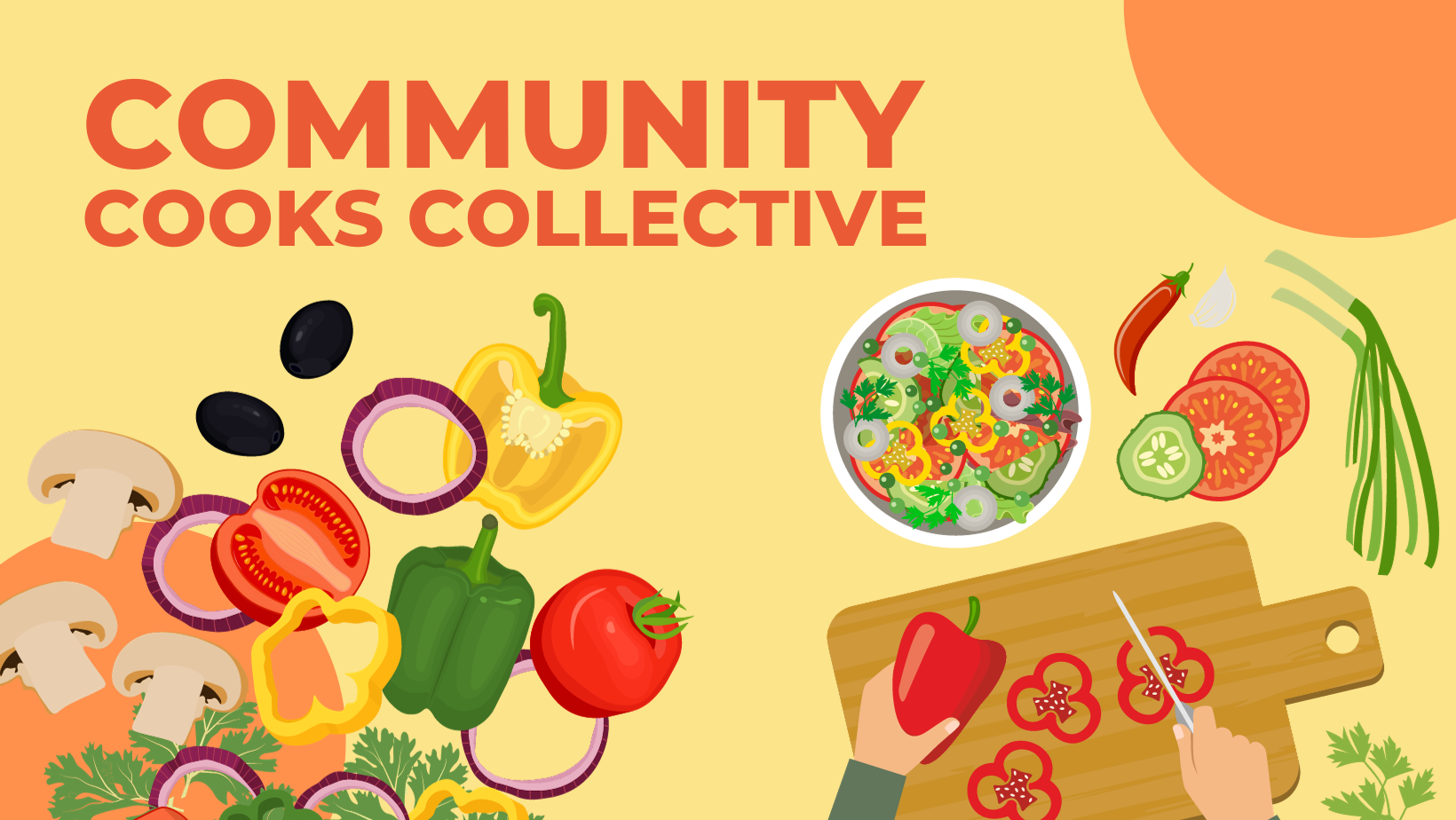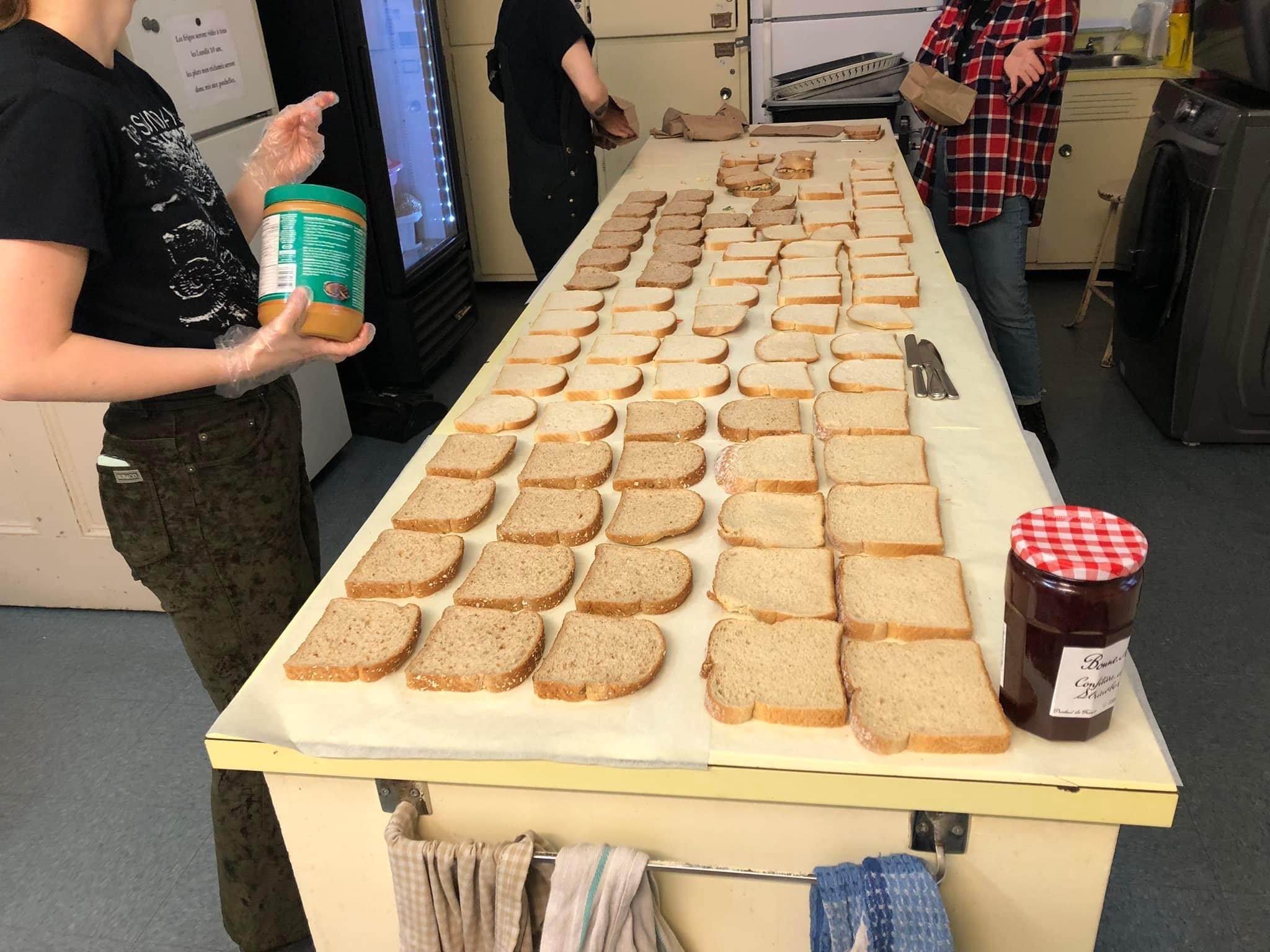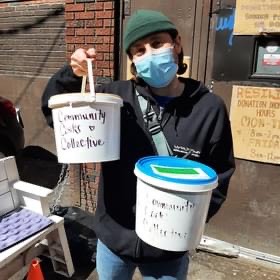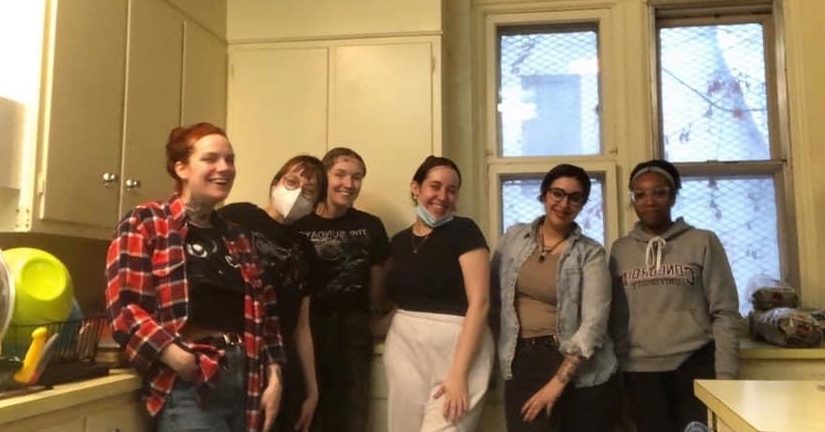Article written by Florencia Lazcano in collaboration with the Carrefour jeunesse-emploi Montréal Centre-Ville.
This piece was submitted to the Citizen Journal project of the Peter-McGill Community Council. Please note that the opinions expressed in these articles do not necessarily reflect those of our organization. This project aims to create space for the voices of residents, students and friends of the neighbourhood through articles, photos, videos, and podcasts in any language. Are you interested in contributing? Contact us at benevolat@petermcgill.org!

In the face of rising food waste and food insecurity in Canada, an organization has emerged to bring hope. The Community Cooks Collective (CCC) is a group of dedicated individuals who started cooking from home during the pandemic and have now expanded their efforts to cook in person. With the support of CultivAction supplying vegetables and Innovation Youth providing the space, CCC prepares and distributes home-cooked meals to local shelters, including Open Doors and Resilience. While making some sandwiches, I had the privilege of speaking with two inspiring members, Elizabeth and Nataliya, who shared their thoughts on the issue of food insecurity.

THE COMPLEXITY OF FOOD INSECURITY
“Food insecurity is a bit more of a complex issue,” Nat explains. “It really skyrocketed during the pandemic, and we saw this through the increase in demand for donations for shelters,” she says, adding, “It’s not just an issue that affects the unhoused population. The statistic of 5.8 million Canadians experiencing food insecurity really blew my mind. And I think the number of people who are not quite food insecure but are still worried about rising food costs is even higher. It’s hard to think about living your life when you’re worried about where your next meal will come from. She adds: “Reducing food waste is and always has been a really important topic for me, so CCC working with CultivAction is a HUGE thing in reducing food waste and using products grown in the city. I think the city could do a better job of composting services. Another factor of food waste is that we are just so used to living in a consumption-based society that people don’t learn how to make use of all parts of food and they don’t learn how to properly store food/how to tell if something is good to eat. Education is really important to learn things like how to make broth from scraps etc.”
WHAT IS FOOD INSECURITY, IN SHORT?
Food insecurity refers to the economic and social conditions limiting access to safe and nutritious food. This issue is linked to households’ ability to access adequate food.
Research shows that 5.8 million Canadians live in food-insecure households, but the number is likely far greater. People identifying as white are the least likely to face food insecurities while over 30% of Indigenous individuals live in food-insecure households.
WHAT ABOUT FOOD WASTE?
Food waste refers to food that is not consumed by humans, that is discarded or recycled, such as plate waste (i.e., food that has been served but not eaten), spoiled food, or peels and rinds considered inedible.
One in eight households in Canada has been food insecure since 2018, and yet food waste continues. However, 60% of Canadian food waste is avoidable. According to the UN Food Waste Index from 2021, the average Canadian household wastes 79 kilograms of food every year.

CCC’S MISSION AND VALUES:
CCC’s mandate is rooted in its commitment to making a difference. Their mission encircles three core values:
- The creation and delivery of home-cooked meals to shelters.
- The cultivation of community among their team and participants.
- The cultivation of a macro community that includes the homeless population of Montreal.
According to the CCC, “We strive to better understand the varying positions of privilege that we occupy. We recognize that the community’s safety net benefits us all, and those who find themselves deficient in resources are crucial and valued members of this larger community. We are here because we collectively harbour an excess of resources to invest in our community.” This thought-provoking perspective encourages reflection.
The CCC is not afraid to tackle the tough issues. They believe in exercising vulnerability, imagining bold futures, taking direct action, and engaging in community organizing. They acknowledge that mistakes may happen along the way but are committed to being held accountable, correcting themselves, and learning from them. Inclusivity and accessibility are also at the forefront of their efforts, and they actively invite and uphold those underrepresented in their communities.
The Community Cooks Collective is a living, breathing, and ever-evolving organization. They are making a tangible difference in the lives of those in need through their actions. Their commitment to the community sets them apart as an example of what can be achieved when individuals come together for a common cause.
The CCC’s permanent staff come from diverse backgrounds and embrace individuals from all walks of life. Their cooking sessions take place in various spaces, including the welcoming environment of the St. Jax Center. Their approach promotes a sense of belonging and unity among the volunteers, creating a warm atmosphere.
If you want to get involved and have a great time while making a change, reach out to CCC through their Facebook page, Instagram account, or email at communitycookscollective@gmail.com. Your support can help them continue their amazing work and create a brighter future for all. Together, we can combat food waste, alleviate food insecurity, and build a more compassionate society.

Useful links:
Cultivaction: Cultivaction.ca
Community Cooks Collective: communitycookscollective.ca
Innovation youth: innovationjeunes.com